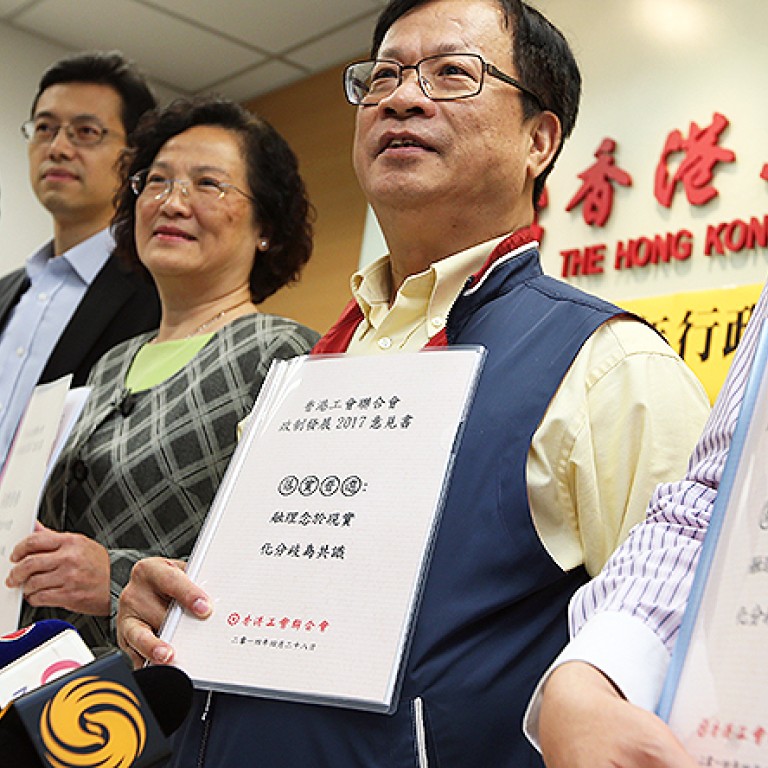
New | Federation of Trade Unions floats electoral reform proposal
Trade union's plan echoes those proposed last week by the largest pro-Beijing party, the DAB
The Federation of Trade Unions, which has six seats in the Legislative Council, unveiled their electoral reform proposal today, following in the footsteps of another Beijing-loyalist group in proposing that chief executive candidates must have the support of half of the nominating committee.
The city’s largest trade union suggested that the pan-democrats could still have a chance of running for the 2017 chief executive election even if candidates need to be backed by half of a nominating committee.
It will be a fair system which allows all candidates to debate publicly … and it is not tailored [for including or] excluding anyone from the public vote
According to its proposal, a nominating committee should consist of 1,200 to 1,600 members. Hopefuls have to first secure the support of at least 5 per cent of the committee members before contesting in an internal ballot.
Each committee member will then cast up to three votes to shortlist two to three candidates who will stand in the final, popular vote. The finals candidates must have the support of at least half of the committee.
This would mean a hopeful who has strong public backing and support from a minority of committee members would still have no chance of getting onto the ballot paper.
Last week, the city’s largest pro-government party Democratic Alliance for the Betterment and Progress of Hong Kong drew criticism from across the political spectrum after they proposed a similar plan.
The DAB proposal released last week also suggested creating a nominating committee with 1,200 to 1,600 members will be created. By contrast, however, its plan will require hopefuls to get support from at least one-tenth of committee members in order to qualify for an internal ballot.
Its plan has drawn criticism from more than 20 pan-democratic groups which reiterate their support for public nomination.
When asked whether they believe their proposal will be acceptable to pan-democrats, FTU honorary president and executive councillor Cheng Yiu-tong insisted that their plan would leave the doors open to candidates with different political leanings.
“Primary elections are common in democratic countries,” Cheng said. “It will be a fair system which allows all candidates to debate publicly … and it is not tailored [for including or] excluding anyone from the public vote.”
FTU lawmaker Wong Kwok-kin added that the proposal represented the federation’s view on the issue and the government’s responsibility to forge consensus among different political parties.

